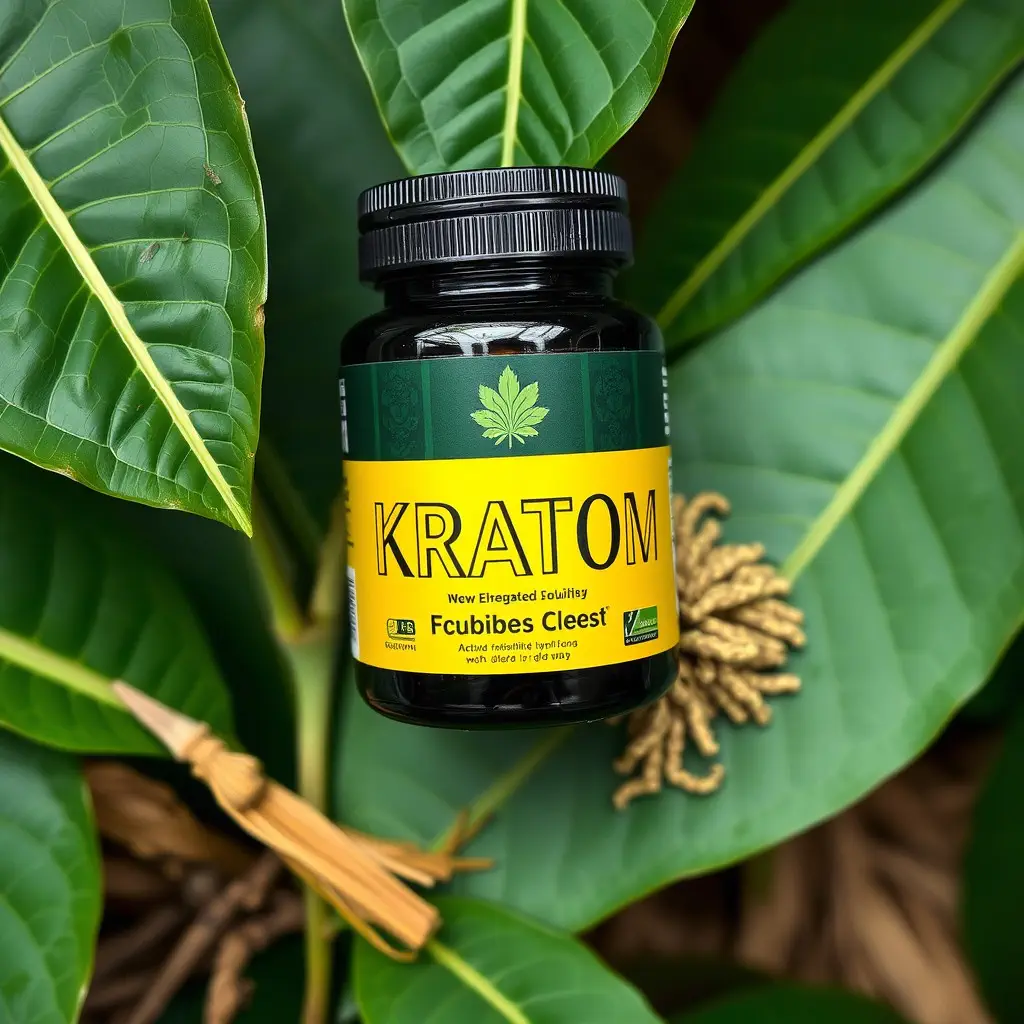Thai Kratom Powder, derived from Mitragyna speciosa, is a culturally significant herb with global appeal due to its medicinal benefits. Cultivated by Thai farmers, it's incorporated into popular kanna products, offering pain relief, mood enhancement, and energy stimulation. However, individual reactions vary, and responsible use with low doses is crucial. The international market for Thai Kratom Powder thrives, but legal statuses differ widely, necessitating careful navigation.
“Discover the captivating world of Thai Kratom Powder, a cultural treasure with botanical significance. This article offers an in-depth exploration of Kanna products, delving into their rich history and diverse applications. From its roots in traditional Thai medicine to its modern usage, we uncover the benefits and safety aspects of these powerful natural compounds.
We’ll navigate the global market’s availability and legal landscape, providing insights for informed decisions. Unravel the secrets of Thai Kratom and its impact on well-being, all while learning about the unique properties that make Kanna products a popular choice.”
- Understanding Thai Kratom Powder: A Cultural and Botanical Perspective
- The Benefits and Safety Considerations of Using Kanna Products
- Exploring the Availability and Legal Status of Thai Kratom in the Global Market
Understanding Thai Kratom Powder: A Cultural and Botanical Perspective

Thai Kratom Powder, known for its unique properties and cultural significance, is a derivative of the Mitragyna speciosa plant, deeply rooted in Thailand’s botanical history. This plant has been used for centuries by local communities not just for medicinal purposes but also as a symbol of cultural identity. Beyond its traditional use, Thai Kratom Powder has gained global attention due to its diverse effects, including pain relief, mood enhancement, and energy stimulation, making it a popular ingredient in various kanna products.
Botanically, the Mitragyna speciosa tree thrives in tropical regions, with its leaves containing alkaloids that contribute to its therapeutic benefits. Thai farmers have perfected the art of cultivating this plant, ensuring high-quality kratom powder that meets both cultural and commercial demands. The intricate process of harvesting, drying, and grinding these leaves results in a versatile product that finds its way into various health supplements and traditional remedies worldwide.
The Benefits and Safety Considerations of Using Kanna Products

Kratom, scientifically known as Mitragyna speciosa, has gained popularity for its various forms, including powder, often referred to as kanna products. These products offer a range of potential benefits. Many users attest to its pain-relieving properties, making it a natural alternative for managing chronic conditions. Additionally, kanna products are known to enhance mood and promote relaxation without the sedating effects sometimes associated with other remedies. Some users also report increased energy levels, which could be advantageous for those seeking a gentle stimulant.
However, as with any substance, there are safety considerations when using kanna products. Individual reactions can vary, and some people may experience side effects such as nausea or insomnia. It’s crucial to start with a low dose and monitor how your body responds. Furthermore, building tolerance can lead to dependence, so responsible use is essential. Always consult with healthcare professionals before incorporating kanna products into your wellness routine, especially if you have existing health conditions or are taking other medications.
Exploring the Availability and Legal Status of Thai Kratom in the Global Market

Thai Kratom Powder, a renowned variety of kratom known for its potent effects and unique chemical profile, has captivated users worldwide. Exploring its availability in the global market reveals a complex landscape. The demand for kanna products, as Thai Kratom is sometimes referred to, has spurred international trade, making it accessible through various online platforms and specialized retailers. However, this popularity also highlights the need to navigate legal considerations, as kratom’s regulatory status varies significantly across countries.
In some regions, Thai Kratom enjoys relatively unrestricted access, contributing to its global allure. Conversely, other areas have implemented stringent controls or even banned it altogether, citing health concerns and limited research. Understanding these legal nuances is essential for both consumers and businesses operating in the international kratom market. This dynamic environment necessitates informed decisions regarding sourcing, distribution, and compliance with local regulations.
Thai Kratom Powder, rooted in cultural significance and botanical intrigue, offers a unique blend of benefits. As discussed, understanding its origins and proper usage is essential for harnessing the positive aspects of kanna products. With awareness about safety considerations, the global market can navigate its legal status, ensuring access to this ancient herb’s potential therapeutic advantages.






